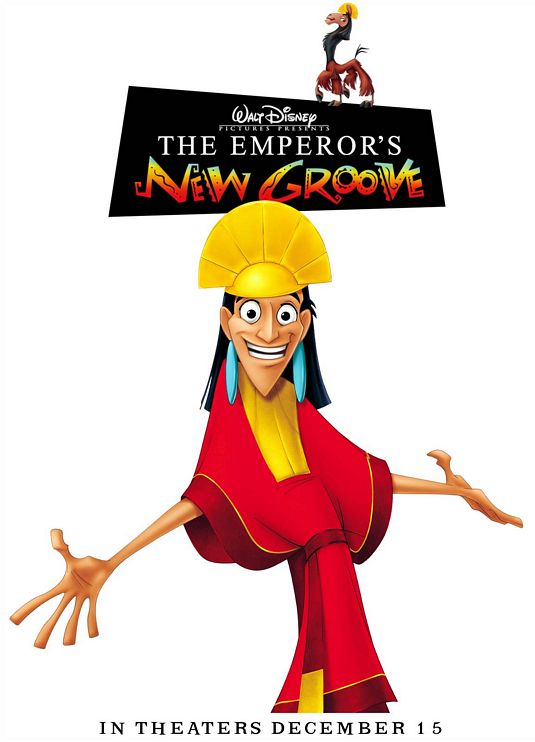“Good Movie, Mate!”

| None | Light | Moderate | Heavy | |
|---|---|---|---|---|
| Language | ||||
| Violence | ||||
| Sex | ||||
| Nudity |
What You Need To Know:
CROCODILE DUNDEE IN LOS ANGELES is a highly entertaining addition to the series that is probably tamer and more family friendly than the other two movies. If you like the character of Crocodile Dundee, you’ll probably enjoy this movie immensely. It’s like visiting an old friend who, though he may regale you with the same old stories, is still fun to be around. The movie contains some PG-rated material requiring a bit of caution, however. It also has a couple minor worldview problems, but still manages to send a few positive messages along its very amiable way
Content:
(Ro, BB, Pa, Ho, LL, V, S, N, A, D) Romantic worldview of Rousseau’s “natural man” but combined with strong moral elements about fighting mean crooks, discovering truth & protecting loved ones, plus a pagan reference to sitting in “the Buddha position” while meditating for personal peace & power which turns into a joke that sort of pokes fun at such notions, man has mystical aborigine power over animals, & very lightweight verbal references to homosexuality for comic purposes; 20 obscenities including a few “s” words & some uses of the British vulgarity “bloody,” no profanities & hunter shows lizard dung to his son as a sign that the animal is nearby; mostly comic, adventure violence as bucolic hero battles huge crocodile & urban crooks, including villains shoot some guns & threaten people with guns, men hit with boards & other objects, man throws knife at villain to scare him, men wreck roof of car, & cars nearly crash into one another; cohabitation without benefit of marriage where couple has out of wedlock child but marriage is extolled at the end, plus women & men make comments about physical attraction or show interest in members of opposite sex; brief upper male nudity in naturalistic contexts & some low cut tops on a few women but nothing really salacious; alcohol use; smoking; and, miscellaneous items such as father tells boy to stay away from the pub after boy makes mildly crude remark about a woman’s “nice” body.
More Detail:
Like the first movie, CROCODILE DUNDEE IN LOS ANGELES starts in the Outback. Sue and Mick live in Walkabout Creek with their 9-year-old son, Mikey. Sue’s newspaper tycoon father asks her to fill in for the bureau chief of her dad’s Los Angeles outlet, who has died under suspicious circumstances. Mick thinks it’s a good time to expose Mikey to the world outside Walkabout Creek. He realizes that crocodile hunters are a dying breed. In fact, it’s now illegal to hunt them, so Mick is little more than a tourist guide and crocodile wrangler.
So, the family packs their bags and heads for L.A. There, Sue discovers there’s something fishy about her predecessor’s “accidental” death. She thinks the mystery is connected to a new, small Hollywood production studio that’s just churning out a series of B movie action films. Sue hits a blank wall, however, after she does some reporting on the studio’s sleazy boss. After playing the tourist with his son, who starts school in Beverly Hills, Mick decides to go undercover at the studio to see if he can help Sue solve the mystery.
CROCODILE DUNDEE IN LOS ANGELES is a breezy, hilarious comedy designed for family audiences. There are funny scenes with Mick and his hunting companion, Jacko, played by Alec Wilson, in the Australian swamps. There are funny scenes with Mick and Mikey doing the touristy thing in L.A. There are more funny scenes with Mick showing Jacko around town when Jacko comes to America to be Mikey’s “nanny.” There are even more funny scenes between Mick and American comic Paul Rodriguez, who plays a friendly, helpful extra on the set who’s positively amazed by Mick’s goofy antics. There are even funny scenes as Mick battles the bad guys he meets in the City of Angles. As the studio, Paramount, notes in its publicity for this movie, “Wrestling crocodiles is nothing compared to swimming with sharks in Los Angeles.”
CROCODILE DUNDEE IN LOS ANGELES also has some scenes of mild comic violence. In these scenes, Mick not only battles a huge crocodile which eats his boat, he also battles the urban crooks he encounters in L.A., usually by surprising them and hitting them with studio props. Although some of the crooks fire their guns in several scenes, the violence seems tamer than even the first HOME ALONE family comedy, which this movie slightly resembles at times, especially in its physical comedy near the end.
If you like the character of Crocodile Dundee, you’ll probably enjoy this movie immensely. It’s like visiting an old friend who, though he may regale you with the same old stories, is still fun to be around. Naturally, since he created the character, Paul Hogan fits this role like a fine glove. He and Linda Kozlowski make a great romantic couple onscreen. There’s a rapport between them that seems to come pretty easy to them, probably because they’re married in real life. In fact, Hogan left his first wife and married Kozlowski after they met on the first CROCODILE DUNDEE movie. The relationship between Mick and his son, whose played by Serge Cockburn in his first major role, is also charming. Alec Wilson and Paul Rodriguez as Jacko and Diego, respectively, also do a fine job with their characters.
There are, however, several things about CROCODILE DUNDEE IN LOS ANGELES which parents might not want their younger children and some of their older children to experience.
First, Mick and Sue have yet to marry, even though they finally tie the knot at the end of the movie and even though there are no risqué scenes between them. There are also a few humorous moments where city women become attracted to Mick and his friend Jacko because of their macho personalities. Mick’s son, Mikey, even admires one female’s looks, and Mick admonishes his son to “stay away from the pub” back home. Thus, the movie’s message about male/female relationships is not 100 percent pure, even though it’s aimed totally at a mild PG level.
CROCODILE DUNDEE IN LOS ANGELES also contains a couple lightweight jokes regarding homosexuals. For example, one night Mick shows Jacko around town, including a trip to Wendy’s hamburger place, which Mick calls one of the best restaurants in town. The two men go to wet their whistle at a bar. The movie shows them entering one place where a woman attends the door outside. Mick and Jacko come out a second later with pained looks on their faces because they’ve entered a homosexual bar. One of them says to the other how strange it was that there was only one woman at the place, the woman attending the door, but of course, that “woman” is a man in drag. Mick tells Jack that the “poofters” inside the establishment are what people in L.A. call “gay homosexuals.” Whether or not this redundant comment is a sly dig at the politically correct nonsense spouted by the ranting radicals of the “progressives” and “open-minded moderates” in America, who can say. What we can say is that, though these references are pretty mild, they are not something meant for younger ears.
CROCODILE DUNDEE IN LOS ANGELES contains about 20 obscenities, including a few “s” words and a few uses of the English obscenity “bloody.” There is also a comic scene where Mick and his son meet the famous boxer Mike Tyson doing some kind of Eastern meditation silence to find inner “peace” and “power.” Mike teaches the moment of meditation silence to Mick and his son. Mick doesn’t know about Tyson’s boxing interests, so Mick remarks to his son afterwards that he’s sure that this Mike is a pretty gentle fellow who wouldn’t hurt a fly. Of course, Tyson is known for his brutality inside and outside the boxing ring, so this is another sly joke that seems to poke fun at another fad in Pagan America. This time, instead of the homosexual fad, the movie seems to be poking a little fun at the New Age fad.
Minimizing these problems, however, are the rest of the movie, which is just a breezy, funny Tarzan myth. In this kind of romantic worldview, the innocent “natural” man (or beast as in the case of the classic KING KONG) from the wilderness encounters the crazy, sometimes dangerous, world of civilization. The wild man teaches the “civilized” people a thing or two about integrity, honesty and true grit, and sometimes learns a lesson or two himself. CROCODILE DUNDEE IN LOS ANGELES, like the other CROCODILE movies, fits this mold as tightly as Mick Dundee’s stylish Australian black hat fits his graying mane. As a character, Crocodile Dundee is a lion for all seasons. Moviegoers could certainly do much worse this particular season spending time with Mick Dundee and his family and pals.


 - Content:
- Content: 






